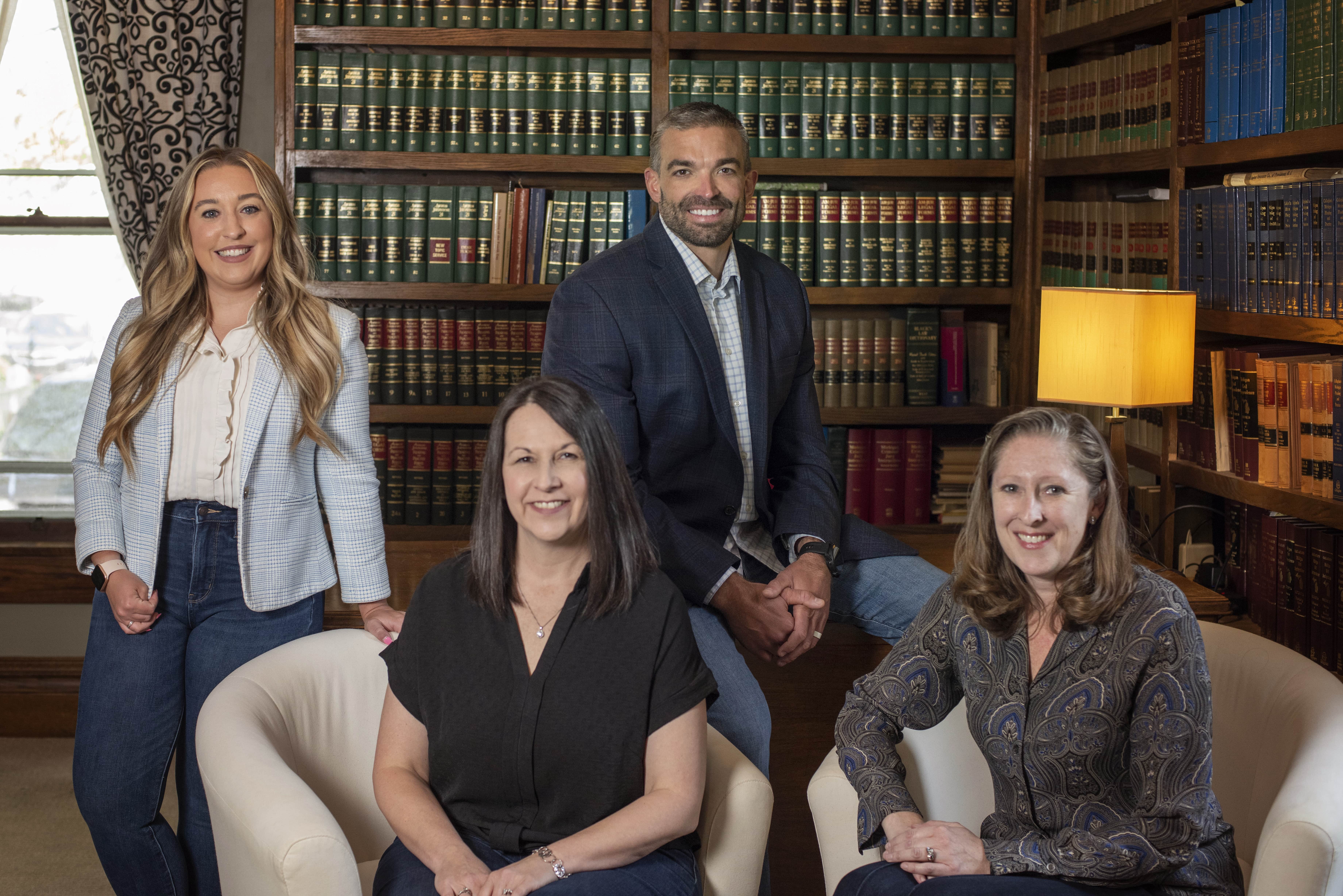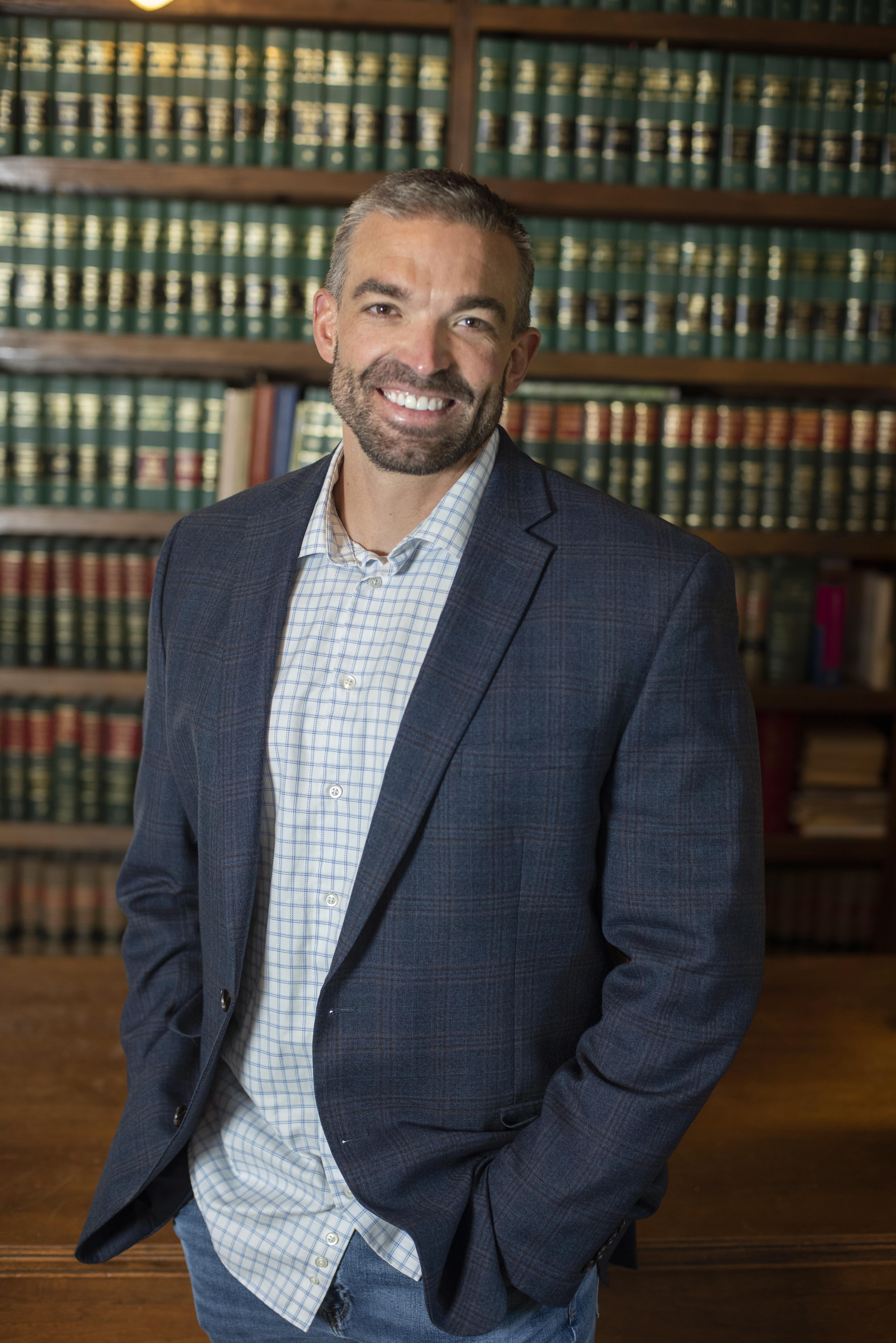AGGRESSIVE. EXPERIENCED. SUCCESSFUL.
Compassionately Advocating for Clients Across Michigan
Trusted and Awarded
Serving clients for over 14 years
Services
What we can do for you
Federal Defense
Defending federal charges: white-collar, gun/drug offenses, fraud; strong legal representation for clients.
Sex Crimes
Compassionate defense against sex offenses, strong representation for sexual assault, rape, child pornography charges.
Child Custody
Guiding child custody, prioritizing child's interests, parenting, support issues.
Divorce
Navigating divorces, ensuring favorable property, custody, support outcomes.
Violent Crimes
Defending diverse violent crimes with strong, fair representation.
Drug & Alcohol Offenses
Defending drug/alcohol charges, protecting rights, minimizing impact on lives.
Exceeding Expectations
Listen to what our clients have to say
“Nicole stepped in when my other attorney had to move and has always been courteous and professional. She is diligent, hardworking and honest and I appreciate everything she's helped me with. I highly recommend her to anyone.”
Rachael“Mrs. Samuel does an incredible job answering any questions that you may have about the process. She follows through with her word and puts in the effort for you as a client. I would recommend Samuel Law for anyone in need.”
Tyger“Nicole had my back throughout my case. She fought hard for me and I was more than satisfied with the outcome. I highly recommend her.”
Don
Our Team
Learn about who is ready to defend you



Nicole Samuel
Lawyer
Nicole Samuel is the founder and owner of Samuel Law, P.C., specializing in criminal defense and family law. With a strong focus on trial advocacy, Nicole is a tenacious litigator experienced in state and federal criminal cases. She handles divorce, child custody, and post-judgment matters in family law. Recognized for securing favorable outcomes, Nicole is a Criminal Justice Act Attorney and Top 40 Under 40 recipient in Criminal Defense. She graduated summa cum laude from Michigan State University College of Law, honing her skills at a prestigious firm before establishing her practice. Nicole continues to enhance her trial expertise through reputable programs, staying at the forefront of the law. Based in Michigan, she resides in Haslett with her family.
News & Press
The latest from Newburg Law
Texting while Driving
The ability to use your phone while you are driving is going to change. On June 30, 2023, Michigan drivers will not be allowed to hold or use their cell phones while they are driving their cars. This is an expansion of Michigan’s anti-texting while driving law which was passed in 2010 and increases prohibited activities while a driver is operating a motor vehicle. Once the law takes affect, anyone who is operating a motor vehicle in Michigan is prohibited from using, or even holding your cell phone while you are driving. This prohibition includes using a phone to send or receive texts, record videos, or access social media. This prohibition just doesn’t apply when the car is moving, it applies anytime the car is on. That includes stopping at stop signs, traffic lights or other traffic control devices. Like every law, there are some exceptions to the general rule which is discussed above. So, this is what you can do under the new law: - Drivers may use a device’s GPS function as long as the information is not entered by hand. - All drivers, except those with a level 1 or 2 graduated license, may use their device in hands-free modes as long as they only tap, push, or swipe on their phones once to turn on the hands-free setting. - All drivers may use a device for emergency purposes, such as calling 911. - Law enforcement officers, firefighters, and other emergency personnel may use their phones in the performance of their duties. If you are caught violating this statute, you will face a civil infraction that includes a $100 fine and/or 16 hours of community service. You will also have 1 point added to your driving record and, should you not learn your lesson from the first infraction, the penalties only increase as your infractions accumulate. Third-time offenders may have to complete a basic driver improvement course.
Read MoreTransitioning To A Medical Marijuana Facility Licensee? Here’s What You Need To Know
Not long ago, the Michigan Department of Licensing and Regulatory Affairs(LARA) established a newmedical marijuana facility licensing and regulationprogram. As such, LARA also issued an advisory bulletinsetting forth requirements for the transition from medical marijuana caregivers/patients to facility license holders and employees. Under the Medical Marihuana Facilities Licensing Act(MMFLA), grower and processor facility licensees must have at least two years’ experience as a caregiver or have an active employee with two years’ experience as a caregiver. However, a licensed grower or processor cannot be simultaneously registered as a caregiver and must not employ a registered caregiver. As a result, LARA requires that, upon being licensed, any caregivers affiliated or employed by a grower or processor must submit a Withdrawal Formto cancel their caregiver status within five business days. New employees also have five business days to submit the caregiver cancellation form. If you are a caregiver who wants to withdraw from the Michigan Medical Marihuana Program(MMMP), be sure to complete the Withdrawal Form and submit it to the MMMP in a timely manner. Note, however, the MMFLA does not prohibit grower and processor facility licensees from being registered as patients under the MMMP. In addition, such facilities are not prohibited from employing registered patients. When it comes to secure transporters, the MMFLA requires that to be eligible for a secure transporter license, an applicant and any investors cannot be registered patients or caregivers. This means that applicants for a secure transporter license (and those affiliated with the applicant as investors, direct/indirect owners, partners, officers, directors, managers or members) are required to withdraw from the MMMP registry as caregivers or patients. This must occur before applying for a secure transporter license. If you are a caregiver or patient who now wants a secure transporter license, be sure to submit the Withdrawal Formin a timely fashion. Meanwhile, the MMFLA does not prohibit provisioning center and safety compliance facility licenses from being registered as patients or caregivers. Nor does the MMFLA prohibit these facilities from employing patients or caregivers.
Read MoreTrial Court Can Consider Motion To Change Child’s Domicile While Appeal Is Pending
While an issue in a custody case is being appealed, the trial court that presided over the matter retains jurisdiction and may consider a motion to change the domicile of the child, the Michigan Supreme Court has ruled. In Safdar v Aziz, the Supreme Court explained that the Child Custody Act – specifically MCL 722.27(1) – authorizes the trial court’s continuing jurisdiction to modify or amend its previous judgments or orders. This is an exception to the Michigan Court Rules “otherwise provided by law,” the Supreme Court held. According to the Supreme Court, it would be contrary to the plain language of the Child Custody Act to require a trial court to wait for the conclusion of an appeal before addressing a change in circumstances that would affect the best interests of the child. ## Child Custody Act MCL 722.27(1) provides that, if a custody dispute has been submitted to the trial court as an original action or has arisen incidentally from another action in the trial court or an order or judgment of the trial court, “for the best interests of the child the court may do 1 or more of the following: … (c) modify or amend its previous judgments or orders for proper cause shown or because of change of circumstances until the child reaches 18 years of age.” MCL 722.27(1) further says: “The court shall not modify or amend its previous judgments or orders or issue a new order so as to change the established custodial environment of a child unless there is presented clear and convincing evidence that it is in the best interest of the child.” Meanwhile, the Michigan Court Rules regarding appellate procedure address a trial court’s authority while an appeal is pending. MCR 7.208(A) says that, after a claim of appeal is filed or leave to appeal is granted, a trial court may not set aside or amend the judgment or order appealed from, except: 1. by order of the Court of Appeals. 2. by stipulation of the parties. 3. after a decision on the merits in an action in which a preliminary injunction was granted. 4. as otherwise provided by law. At issue in Safdar was whether the trial court still had jurisdiction to consider a motion to change the child’s domicile which was established by a custody award in a divorce judgment, while that underlying judgment was pending appeal. ## ‘Lemmen’ Law To answer the question presented in Safdar, the Michigan Supreme Court looked to its 2008 ruling in Lemmen v Lemmen. The Lemmen Court held that the Legislature’s grant of continuing jurisdiction to modify child and spousal support orders in MCL 552.17(1) and MCL 552.28 satisfied the “otherwise provided by law” requirement of MCR 7.208(A)(4). According to the justices, the Lemmen Court “made clear” that another law need not grant jurisdiction specifically for judgments pending on appeal to qualify as an exception under MCR 7.208(A)(4). “[T]o require the trial court to wait to make modifications until after an appeal is completed is contrary to the plain language of the statutes and would defeat their purpose.” The Supreme Court continued by explaining that, in Safdar, the Court of Appeals found that the rationale in Lemmen also applied to situations involving custody. However, the Court of Appeals further said that, because a motion for change of domicile is filed under MCL 722.31(4) of the Child Custody Act and not MCL 552.17, an additional step was needed to connect Lemmen’s statement about child-support modification to a dispute regarding domicile. According to the appeals court in Safdar, MCL 552.17(1) and the Child Custody Act had to be interpreted in light of each other because both related to the same person or thing. As a result, the Court of Appeals in Safdar held that a trial court may derive continuing jurisdiction over a motion for change in domicile from MCL 552.17(1), and that this jurisdiction also attaches when a motion involves custody. “We mostly agree,” the Supreme Court said. “Lemmen’s reasoning applies to the Legislature’s broad grant of authority in the [Child Custody Act], but the circuit court’s jurisdiction to modify a final judgment with respect to the child custody dispute may be derived exclusively from MCL 722.27(1) …, without resort to MCL 552.17. As between two applicable provisions, we favor the more specific.” ## Best Interests Of Child Next, the Supreme Court noted that a motion for change of domicile filed under MCL 722.31(4) falls within the scope of a “child custody dispute,” as that term is used in MCL 722.27(1). According to the justices, MCL 722.27(1) reflects the Legislature’s intent to protect the interests of children when there are changing circumstances by authorizing trial court jurisdiction until the child becomes an adult. Further, MCL 722.27(1)(c) “specifically permits” a trial court to modify or amend its orders when proper cause is shown or when there has been a change in circumstances, the Supreme Court noted. “Its sole limiting principle is that the modification be in the best interests of the child. As in Lemmen, it would be contrary to the plain language of the [Child Custody Act] to require a court to wait for the conclusion of an appeal to address a change in circumstances that would affect the interests of the child.” In conclusion, the Supreme Court held that MCL 722.27(1) authorizes a trial court’s continuing jurisdiction to modify or amend its previous judgments or orders, and that this is an exception to MCR 7.208(A) “otherwise provided by law.” Therefore, the Supreme Court vacated the Court of Appeals decision to the extent that it derived jurisdiction from MCL 552.17, affirmed the result that was reached and remanded the case to the trial court.
Read More
What can we do for you?
We believe that every individual accused of a crime deserves top-rated representation, regardless of their status.
Our team is committed to providing the highest level of respect, attention, and dedication to each client, no matter the charges they face. We understand the stress and uncertainty that comes with criminal charges, and we work tirelessly to protect our clients' rights, explore all legal options, and achieve the best possible outcome in court.
